May people wonder does marijuana interact with our digestive system and does weed cause diarrhea or constipation? The short answer to the question is, yes, it’s possible but not probable! There are many theories about how cannabis interacts with the digestive system that we will explore throught out this blog.
Throughout history, people have used marijuana to cope with digestive disorders like severe nausea and vomiting. Cannabis has many benefits for people who suffer from digestive diseases or discomfort. Many people claim to have reduced abdominal pain or increased appetite which encourages your body’s natural ability to digest.
Can marijuanas interaction with our digestive system cause diarrhea?
Ganja, meet gut. What happens when you consume marijuana and how does it interact with the digestive system? Get ready for a complicated answer. One theory is that cannabis slows activity in the digestive tract and another is that the cause of diarrhea from marijuana can be a result of added ingredients or contaminants in edibles that cause irratability ion the stomach. It has been reported that pot may lead someone to have loose stools because of its calming effect on stomach acids that reduces speed of the digestive tract.
Cannabinoid receptors in your gut have been linked to reducing discomfort associated with constipation and helping to regulate bowel movements. The science isn’t conclusive enough at this point on precisely how these compounds interact nor are there enough studies with the evidence necessary to draw a final conclusion with absolute certainty but people seem to be getting digestion relief for thousands of years from marijuana.
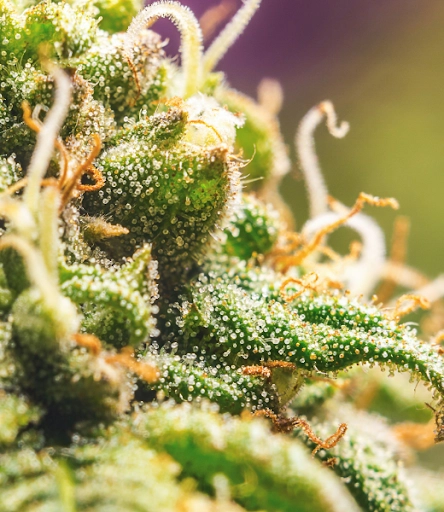
The Truth About Marijuana and Diarrhea
Let’s take a closer look at how marijuana affects the digestive system. You might have heard that marijuana can cause diarrhea and can have a laxative effect on the body that softens stools. What you may not know is that marijuana can also be an effective treatment for diarrhea, especially for those suffering from certain chronic medical conditions. Let’s take a closer look at how marijuana affects the digestive system. Researchers uncovered that “cannabinoids within the gut inhibit peristalsis and reduce the severity of diarrhea.” There is suggestive evidence that marijuana can both reduce and be the cause of diarrhea. Every human that consumes cannabis will be affected differently based on a variety of factors such as:
- Medical condition
- Strain of marijuana
- Consumption methods
- Cannabinoid profiles
- Genetics
Marijuana and the Digestive System
Marijuana contains a number of compounds that can interact with the digestive system, including THC, CBD, and terpenes. THC is the compound that produces the “high” associated with marijuana use. It binds to cannabinoid receptors in the brain and alters perception and mood. CBD is considered a non-psychoactive compound that has been shown to offer a number of potential health benefits including reducing inflammation and pain. Terpenes are aromatic compounds found in marijuana that give it a signature smell. They also affect how THC and CBD interact with the body.
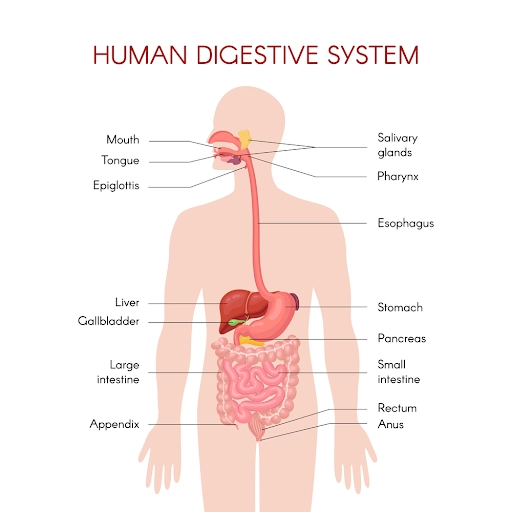
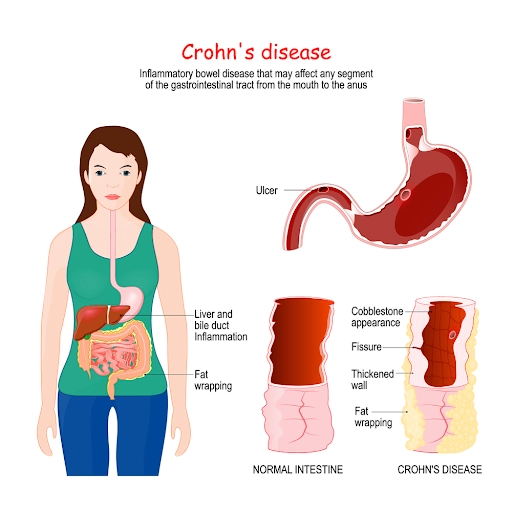
THC, CBD, and Terpenes
In rare cases, marijuana affects the digestive system by causing diarrhea. THC relaxes the intestine muscles, leading to increased motility and cramping. On the other hand, CBD has been shown to help reduce inflammation in the gut, which can be helpful for those suffering from inflammatory bowel diseases (IBD) like Crohn’s disease or ulcerative colitis. Terpenes like linalool and limonene have also been shown to provide anti-inflammatory effects and together whole-plant cannabis extracts which include all the chemical compounds contained in the plant work together synergistically to create the“entourage effect.” which is the therapeutic synergistic benefits. If THC and CBD can reduce inflammation there is a very strong case that cannabis helps ease symptoms of digestive disorders.
Marijuana as a Treatment for Diarrhea
People with chronic medical conditions like Crohn’s disease or irritable bowel syndrome (IBD) use and consider cannabis to be an effective treatment for diarrhea. In fact, one of the most common reasons why people use medical marijuana is to treat gastrointestinal disorders. Marijuana can help reduce inflammation in the gut, relieve pain, and relax smooth muscle in the intestines, all of which can help to alleviate symptoms of diarrhea.
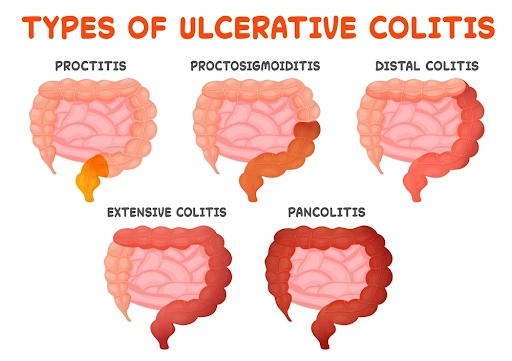
How Does Marijuana Work with Inflammatory Bowel Disease (IBD)?
Marijuana has been shown to be effective in reducing inflammation in a wide variety of conditions, including IBD. A study published in 2010 showed that THC was effective in reducing inflammation in mice with colitis. CBD has also been shown to have antioxidant effects that can result in reducing oxidative stress and inflammation in the digestive tract.
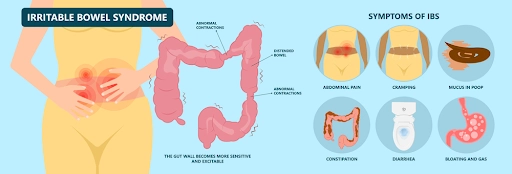
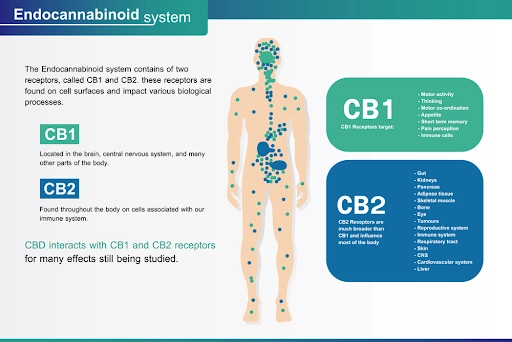
Endocannabinoid System(ECS)
Cannabinoid receptors are found throughout the body of every animal endocannabinoid system (ECS). All birds, reptiles, fish, and even invertebrates have an ECS. The ECS is responsible for maintaining homeostasis, or balance, in the body while regulating physiological and cognitive processes including digestion. When the body is in a state of homeostasis or balance, it is able to function optimally. Many diseases are thought to occur as a result of endocannabinoid deficiency. Cannabinoids, like those found in marijuana, interact with cannabinoid receptors to help maintain homeostasis increasing endocannabinoid efficiency and repair of the body.
Cannabinoid receptors- CB1 and CB2.
CB1 receptors are found primarily in the brain and nervous system. They are responsible for mood, memory, pain perception, and appetite. THC, the psychoactive component of marijuana, interacts with CB1 receptors. CBD, on the other hand, does not interact directly with either CB1 or CB2 receptors but it does influence them indirectly.
CB2 receptors are found primarily in the immune system. They are responsible for inflammation and pain processing. CBD inderctly interacts with CB2 receptors to help reduce inflammation. CBD helps relieve symptoms by activating TRPV1 receptors (vanilloid receptor 1 or capsaicin receptors).
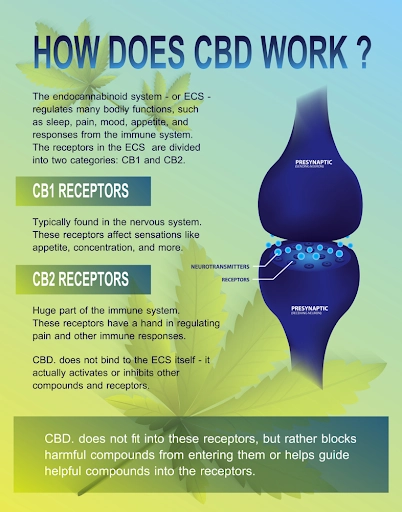

Marijuana is also effective in reducing pain. A study published in 2009 showed that THC was effective in reducing visceral pain perception. CBD has also been shown to be effective in reducing pain perception in rats with inflammatory pain.
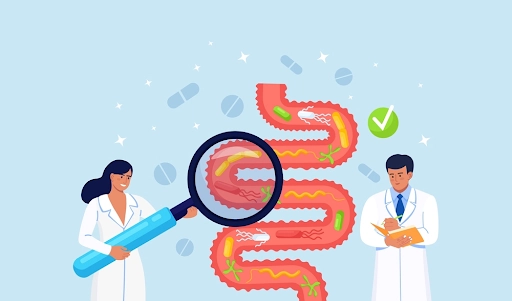
What does this mean for people with digestive disorders?
The answer depends on what medical condition is causing their symptoms. If diarrhea is caused by an excess amount of fiber then marijuana may actually help because cannabinoid receptors will adjust how quickly we pass waste throughout the body reducing frequency but increasing volume when compared to non-cannabis users.
Small studies have shown that marijuana was effective in reducing inflammation and pain from IBD. While more research needs to be done in order to confirm these findings in humans, the available evidence suggests that marijuana may be an effective treatment for IBD symptoms. If you or someone you know suffers from IBD, talk to your doctor about whether medical marijuana might be right for you.

If you’re considering using medical marijuana to treat your diarrhea, it’s important to talk to a marijuana doctor first. They can help you determine whether or not marijuana is right for you once you get approved for your medical card. The doctor should continue to consult the doctor and monitor the progress of your MMJ treatment plan.




